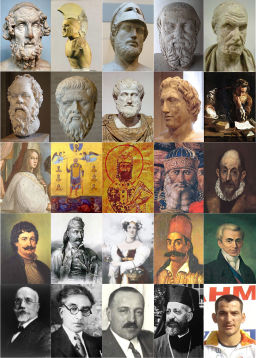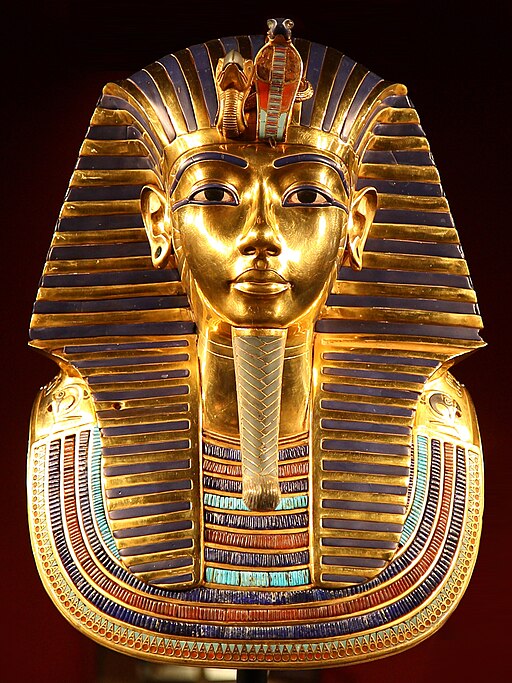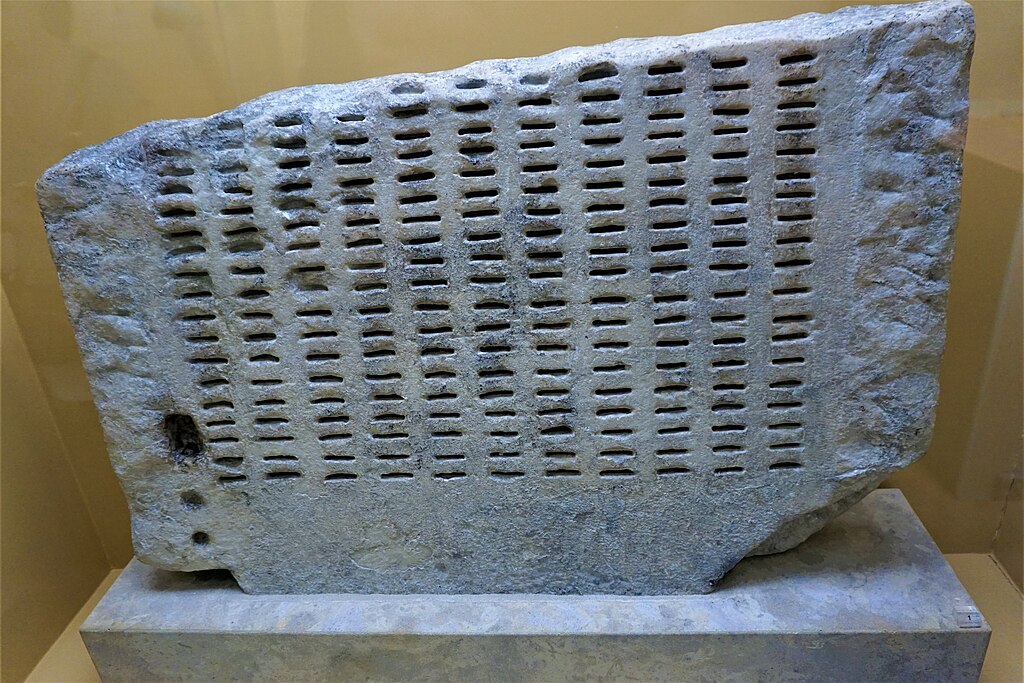This Kleroterion was a device used by the ancient Athenians during their period of Democracy, over 2,500 years ago, to randomly select citizens for state councils, offices, and court juries.
Athenian Democracy developed in the 6th century BC and the process of Sortition was their principal way of achieving fairness and equity.
Sortition is the process for the selection of a few state officials, on a random basis, from a larger pool of candidates.
The fundamental principle behind the sortition process originates from the firm belief that “power corrupts.”
For that reason, when the time came to choose people to be assigned to empowering positions, the ancient Athenians resorted to picking randomly by a lot.
The state positions were highly accountable and only for a limited period, to minimize abuse and corruption.
Sortition was used to pick most of the magistrates for their governing committees, and their juries. Thucydides has Pericles make this point in his Funeral Oration:
“It is administration by the many instead of the few;
that is why it is called a democracy.”
The Athenians used a selection procedure with purpose-built allotment machines like this Kleroteria to avoid the corrupt practices used by oligarchs to buy their way into an office.
Those selected through lot underwent an examination to prevent incompetent officials. The Kleroterion was a stone incised with rows of slots and with an attached tube.
The citizens’ token was placed in the slots, and the container was filled with different-colored dice. The dice were released one by one, and each of the die corresponded to a specific row of tokens.
The color of each die determined whether the owners of the tokens in the corresponding row were selected. The selection decided who was given a seat on the citizen’s council or juries.
Greek Democracy
During the Classical era of Ancient Greece, many city-states had forms of government similar to a democracy, in which the free, native adult male citizens of the city took a direct role in the management of the affairs of state.
These activities were often handled by a form of direct Democracy based on a popular assembly.
Judicial and administrative duties were often handled by large juries drawn from the citizen body in a process known as Sortition. The most significant and well-understood example is Athenian Democracy.
However, at least fifty-two classical Greek city-states also had democratic regimes during part of their history.
During the 3rd century BC, the political center of gravity in Greece shifted from individual city-states to leagues of city-states.
These were confederations that jointly handled the foreign and military affairs for the member cities. Their internal structure was democratic as each city within the league had weight roughly proportional to its size and power.
These leagues differed from the earlier Peloponnesian League or the Delian League, in that a single city did not dominate them as the previous associations used to be dominated by Athens and Sparta.
Kleroterion
- Name: Kleroterion
- Date: 5th Century BCE
- Material: Marble
- City: Athens
- Country: Greece
- Museum: Museum of the Ancient Agora
A Tour of the Museum of the Ancient Agora
- Museum of the Ancient Agora
- Cult Statue from the Temple of Apollo Patrons
- Ionic Column Capital 5th Century BC
- Pyxis with a Lid of Three Horses
- Museum of the Ancient Agora – Photo Gallery
- Kleroterion
- Ostracon of Themistocles
- Ostraka for Ostracism
What did democracy really mean in Athens?
Explains the Ancient Greek Kleroterion
Voting in ancient Athens – Greece
A Tour of Greek Museums and Historic Sites
- Athens Museums
- Ancient Corinth Museums
- Delos Museums
- Delphi Museums
- Ancient Mycenae Museums
- Epidaurus Museums
- Heraklion, Crete Museums
- Meteora Museums
- Milos Museums
- Mystras Museums
- Olympia Museums
- Pella Museums
- Santorini Museums
- Thessaloniki Museums
~~~
“One of the penalties for refusing to participate in politics is that you end up being governed by your inferiors.”
– Plato
~~~
Photo Credit: JOM
Popular this Week








 Sponsor your Favorite Page
Sponsor your Favorite Page SEARCH Search for: Search Follow UsJoin – The JOM Membership Program
Sponsor a Masterpiece with YOUR NAME CHOICE for $5
Share this:
- Tweet

